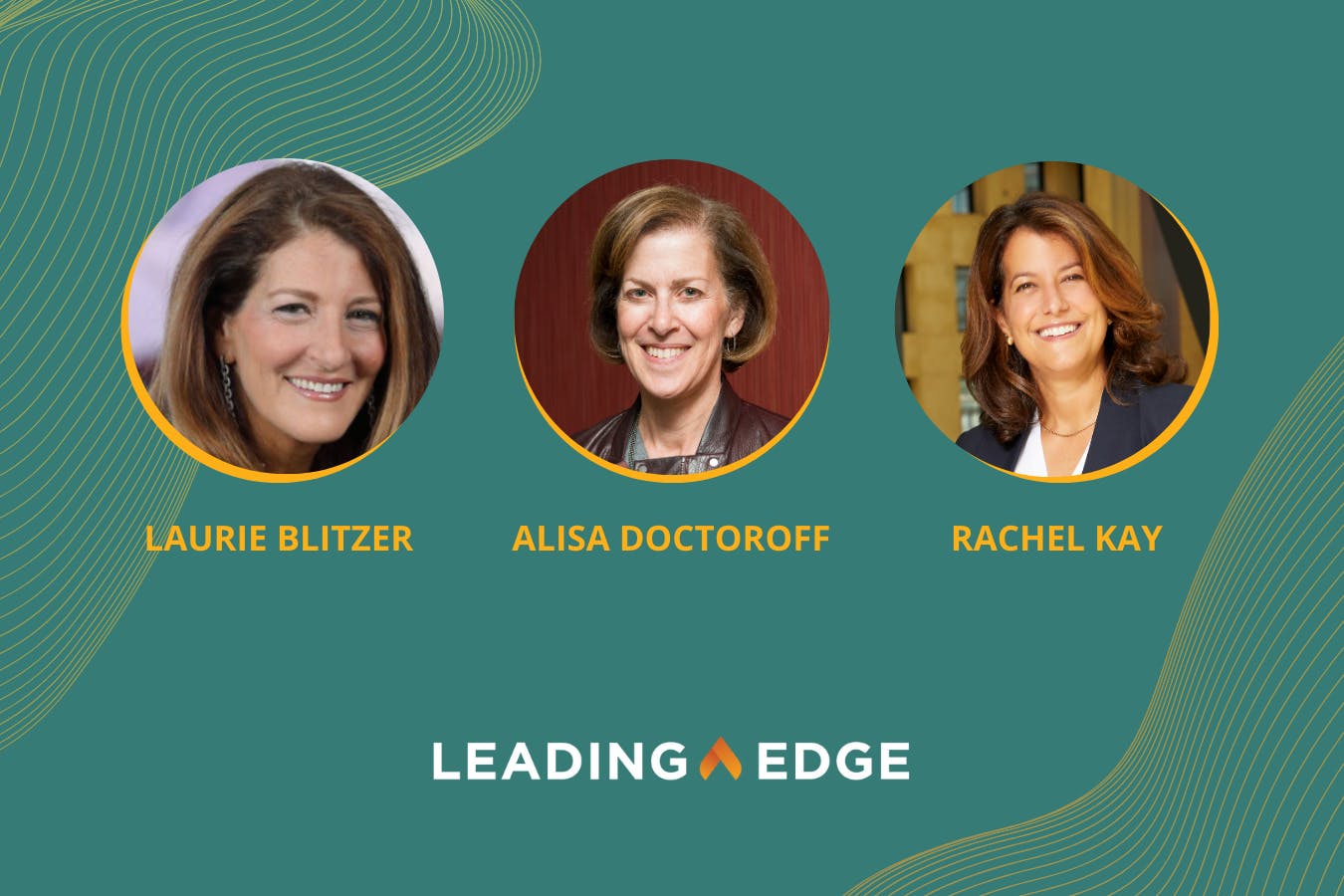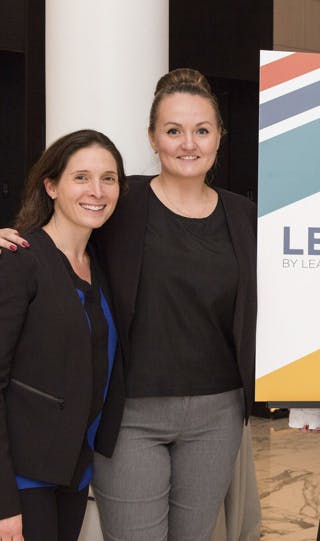
Insights on the Jewish Talent Pipeline from Harvard Business School Prof. Joshua Margolis
Recently, Leading Edge convened a conversation with funders, professional leaders, board members, and other Jewish nonprofit stakeholders, about the Jewish talent pipeline. The event featured a conversation with Prof. Joshua Margolis of Harvard Business School, facilitated by Leading Edge’s board member Rachel Kay (Senior Vice President & Chief People Officer, Hearst). We’re pleased to present this video recording, as well as a summary of a few insights below.
Among much else, here are four insights from this conversation that particularly struck us:
1. Affordability matters for professionals, too.
Stakeholders in the Jewish community are often, and understandably, concerned about the affordability of Jewish experience for community members. But Prof. Margolis reminds us that we’re not concerned enough about the affordability of supplying those Jewish experiences — i.e., the affordability of working in this field. Jewish nonprofit employees need the compensation — as well as prestige and respect — to make the field attractive to the community’s highest-level talent.
2. An organization isn’t one thing, it’s three.
Every organization is three things:
- A practical instrument for doing something (achieving a nonprofit’s mission; selling a product for a business; etc.)
- An investment vehicle — An organization is a vehicle (sometimes) for investing funds, and (always) for investing commitment, effort, trust, time, etc.
- A venue of human living — An organization is a place where professionals, board members, constituents, and community members come together and relate to one another, a place where people spend time and live their lives. That function matters in ways that go beyond the instrumental and investment natures of the organization.
One challenge of leadership is that leaders need to lead the organization in all three of these modes at once, even as different stakeholders often don't agree how to prioritize them.
3. We need to do more to develop people who develop other people.
In our field, we do a lot to develop people who do the primary work of the organizations, but we need to do more to develop the people managers who are developing others. Sometimes professional development means external training, but most mentorship and professional development happens on the job.
4. Doing R&D means real comfort with failure.
Organizations and funders often say they want experimentation and R&D. But often, they want experiments in name only. They want experiments, but only the ones that work. People also say they want to make “big bets,” but often they want their big bets to always succeed. What we need is more experiments that actually test hypotheses on a small scale, and we need to be willing to let the experiments succeed in teaching us, potentially by showing us that the hypothesis is a failure. Corning Glass has an annual celebration (with cake) to celebrate their failures; that’s a mindset toward experimentation that the Jewish community could use more of.
We’re grateful to Prof. Margolis, Rachel Kay, and everyone who joined us for the conversation.



